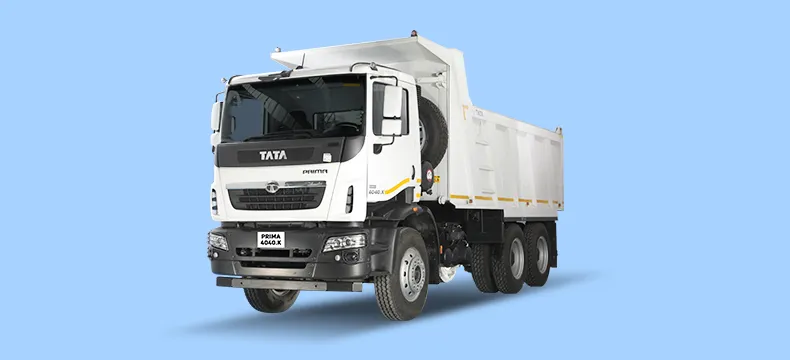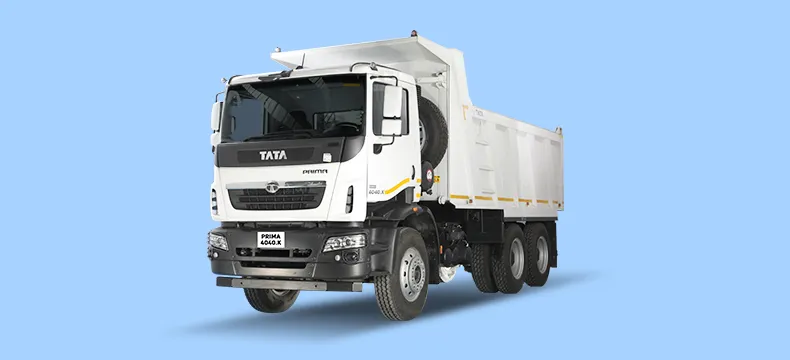10 Mar 2025

Vision 2030: The Role of Strategic Partnerships in Saudi Arabia 2024
- Tata Motors
- 22 Nov 2024
- Commercial Vehicle
Introduction
Strategic partnerships are key to driving innovation and growth. This enables companies to share resources and expertise. These collaborations are crucial for Saudi Arabia as the Kingdom aims to develop its automotive industry under Vision 2030. With a focus on electric vehicles and sustainable technologies, Saudi Arabia seeks global strategic partnerships. The country aims to boost local manufacturing, acquire advanced technology, and position itself as a major player in the global automotive market.
What is the Importance of Strategic Partnerships?
Companies constantly seek innovative approaches to drive growth and gain a competitive edge in today's competitive business environment. Strategic partnerships allow companies to pool their resources, expertise, and technological innovations. It helps to overcome competition, accelerate growth, and expand into new markets. By leveraging each other's strengths, firms can enhance operational efficiency, optimise supply chains, and develop cutting-edge technologies that would be difficult to achieve independently.
Strategic partnerships are vital in navigating an unpredictable global landscape. For Saudi Arabia's economic growth, industries are undergoing significant transformations in line with Vision 2030. Companies are increasingly turning to alliances to drive digital transformation and improve competitiveness. The country's automotive sector relies on such collaborations to capitalise on technological innovations, optimise manufacturing processes, and expand into international markets.
Saudi Arabia's Automotive Industry Transformation
Saudi Arabia is at the forefront of an industrial transformation, particularly in its automotive sector. This is driven by Saudi Arabia's Vision 2030 impact and National Industry Strategy. The Automotive Cluster's primary mandate is to bolster this sector's development. The plan is to collaborate closely with Original Equipment Manufacturers (OEMs), government entities, and key national and global stakeholders. The aim is to establish Saudi Arabia as a regional and global automotive hub, focusing on producing over 400,000 passenger vehicles by 2030.
Through this initiative, the country moves to achieve a Local Gross Value Add (LGVA) of 40%, which will significantly boost domestic production capabilities. This will contribute to Saudi Arabia's ambitions of becoming an export centre for high-value automotive products. This transformation is not limited to conventional manufacturing, and it is also focused on the emerging market for electric vehicles (EVs), autonomous mobility, and clean energy transportation.
Saudi Arabia's Position in the Regional Automotive Market
Saudi Arabia's automotive market is already a regional leader. It holds a 37% market share in the Middle East and North Africa (MENA) region. Sales are expected to reach 779,000 vehicles by 2032. The market is dominated by Japanese, Korean, and Chinese brands, which account for more than half of total vehicle sales in the Kingdom. The country's strategic location and investment in advanced manufacturing technologies make it an attractive destination for automotive production and exports.
The wide value chain of the automotive industry, from OEMs to adjacent sectors, creates a multiplier effect that enhances overall economic growth. This effect is noticeable in Saudi Arabia, where the development of the automotive sector is expected to generate significant employment opportunities and stimulate other industries.
As the Kingdom continues to build its automotive ecosystem, strategic partnerships remain imperative for overcoming challenges, fostering innovation, and achieving long-term industrial success.
Challenges and Opportunities in Saudi Arabia's Automotive Sector
While Saudi Arabia's automotive sector is poised for significant growth, projected at 12% by 2030, it faces several challenges. One major hurdle is the absence of a mature local supply chain, essential for sustained manufacturing and growth. Developing a skilled workforce is another priority, as the sector requires expertise in traditional automotive engineering and advanced technologies such as EVs, commercial vehicles, and autonomous vehicles.
To address these challenges, the National Industrial Strategy and sector-specific initiatives are focused on building a sustainable automotive ecosystem that aligns with the Kingdom's broader economic goals. This ecosystem development includes nurturing local talent, fostering innovation, and creating jobs that contribute to the country's GDP growth.
Latest Partnerships and Prospects of the Automotive Industry
Saudi Arabia's automotive industry continues to witness transformative partnerships, propelling it towards global leadership in sustainable mobility. The Saudi government is pursuing collaborations with Chinese companies in high-tech vehicle manufacturing. These initiatives highlight the Kingdom's long-term strategy to diversify its economy further. This way, the Kingdom can become a global leader in the automotive industry through advanced technology and sustainable mobility solutions.
- Tags



















